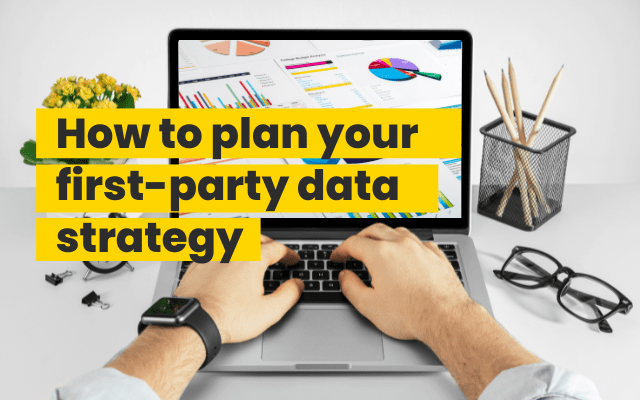TLDR
SEO (Search Engine Optimization) and PPC (Pay-Per-Click) are both powerful tools for driving traffic to your website, but they work in very different ways. SEO is about earning visibility in search engines through organic efforts like content creation and link building.
PPC, on the other hand, is about buying traffic via paid ads. The best strategies often integrate both. Tools like ASK BOSCO® make it easier to see where your efforts are best spent and how SEO and PPC can work together effectively.
What is SEO?
SEO, or search engine optimization, is the process of increasing your website’s visibility in search engine results organically, meaning without paying for placement. It’s a long-term strategy that builds sustainable traffic by making your website more relevant and trustworthy in the eyes of search engines like Google.
SEO can be broken down into several key components:
Keyword research
Finding the words and phrases your target audience uses when searching for your products or services. These keywords help guide your content strategy and on-page optimization.
On-page optimization
This involves refining things like meta titles, descriptions, header tags, image alt text, and internal linking structures to improve visibility and relevance.
Content creation
High-quality, informative, and engaging content is central to SEO. Creating regular high-quality blogs, landing pages, and product descriptions help drive traffic and establish authority.
Link building
Getting links from other reputable websites signals trustworthiness to Google. Follow links (the gold standard) are particularly valuable. Link building also includes digital PR efforts.
Technical SEO
Improving site speed, mobile friendliness, crawlability, structured data, and XML sitemaps to ensure your site performs well behind the scenes.
Local SEO
Optimizing your site and business for local search queries, such as “restaurants near me.” This includes managing Google Business Profiles and creating location-specific landing pages.
SEO analytics and reporting
This includes tracking performance through tools like Google Analytics and Search Console to understand keyword rankings, site traffic, and conversion paths.
What is PPC?
PPC, or pay-per-click, is a model of marketing where advertisers pay a fee each time one of their ads is clicked. Most associated with Google Ads, PPC offers instant visibility on the search engine results page (SERP).
Here are the essential elements of a PPC campaign:
Keyword research
Similar to SEO, but focused on selecting high-intent commercial keywords that people are likely to click on and convert from.
Ad creation
Crafting compelling ad copy and visual creatives (especially for platforms like Facebook or Google Shopping ads) to entice clicks.
Landing page optimization
Ensuring that the page users land on post-click is relevant, persuasive, and conversion focused.
Bid management
Controlling how much you’re willing to pay for each click. Includes strategies around broad match, phrase match, and exact match.
Campaign settings
Adjusting location targeting, ad schedules, device targeting, and more to control how and when your ads appear.
Ad extensions
Enhancements to your ads like callouts, sitelinks, and pricing extensions to increase visibility and CTR.
Conversion tracking
Monitoring how many users take desired actions (like purchasing or signing up) after clicking your ad.
SEO vs PPC: Key differences
Placement on SERP
- SEO: Organic listings, often below the ads.
- PPC: Paid listings that appear at the top of the page.
Cost
- SEO: Free to implement but requires time and expertise.
- PPC: Requires a budget as you’re charged for every click.
Time for results
- SEO: Takes time but builds long-term equity.
- PPC: Instant visibility and traffic, but only while ads are running.
Sustainability
- SEO: Long-lasting results; can drive traffic for years.
- PPC: Stops when your ad budget runs out.
Click through rate (CTR)
- SEO: Typically, higher CTR for informational or branded queries.
- PPC: Higher CTR for commercial or high-intent keywords.
Trust & credibility
- SEO: Viewed as more trustworthy. As this is seen as earned, not paid.
- PPC: Often seen as intrusive or less authentic as people don’t want ads when they are online and are typically trying to avoid paid ads.
When to use SEO
SEO is an excellent strategy when your business is focused on long-term growth and building a sustainable online presence. If your goal is to increase visibility over time and position your brand as a trusted authority in your industry, investing in SEO is essential. Unlike paid strategies that stop delivering traffic once the budget runs out, SEO continues to drive organic visits long after the initial work has been done, making it a cost-effective foundation for lasting results.
For content-driven marketing strategies, SEO is particularly powerful. Blogs, how-to guides, product reviews, and other educational content are naturally aligned with how users search for information. By aligning your content with the questions and needs of your target audience, you can attract highly relevant traffic, build brand awareness, and move potential customers through the sales funnel organically.
SEO also shines when you’re working with a limited advertising budget. Since it doesn’t require ongoing payments for clicks or impressions, it offers compounding returns on your investment. While the upfront time and effort can be significant, the long-term payoff often outweighs the initial resource commitment, especially for businesses looking to grow steadily without overspending on paid ads.
When to use PPC
PPC is the go-to strategy when you need immediate visibility and fast results. Whether you’re running a short-term promotion, launching a seasonal campaign, or trying to capitalize on a time-sensitive opportunity like Black Friday or a product release, PPC allows you to appear at the top of search results almost instantly. This makes it ideal for businesses that want to drive traffic and conversions quickly without waiting for organic rankings to build over time.
It’s also particularly useful in highly competitive markets where organic rankings are difficult to achieve. In such cases, PPC can act as a powerful entry point, allowing you to outbid competitors for key search terms and gain traction while you develop your SEO strategy in parallel. This is especially helpful when targeting new regions or demographics, such as entering international markets where your brand may not yet be established.
PPC is also a smart choice when launching a new website or product. Since new domains typically take time to rank organically, PPC can help bridge that gap by delivering instant traffic. It provides valuable insights into which keywords, messaging, and landing pages convert best, data that can later inform your SEO and content strategy. However, because PPC requires ongoing budget and careful management, it’s most effective when used with a clear objective and robust tracking in place to measure ROI.
How SEO & PPC work together
Although SEO and PPC are often seen as separate marketing channels, they’re most powerful when used in tandem. One of the most effective ways they complement each other is through keyword research. PPC campaigns provide quick feedback on which keywords are driving clicks and conversions, and that data can be used to inform your SEO content strategy. Similarly, keywords that perform well organically can help refine and focus your paid campaigns for better targeting.
Running both SEO and PPC for the same search terms also boosts your visibility on the search engine results page (SERP). Appearing in both the paid and organic listings increases the chances of winning the click and reinforces your brand presence. This dual placement can be especially beneficial in competitive markets, where even a slight edge can lead to significantly higher engagement.
PPC also plays a valuable role in supporting SEO during the early stages of a campaign. When you’re working to improve rankings for important keywords but haven’t yet broken into the top positions, paid ads can help fill that gap, driving traffic in the short term while your SEO efforts build momentum in the background.
Perhaps most importantly, tools like ASK BOSCO® make it easier to manage budgets across channels. By identifying keywords that are already ranking well organically, you can reallocate PPC spend away from those terms and invest it where it’s needed most. This data-driven approach ensures you’re not overspending unnecessarily and allows for smarter, more efficient cross-channel planning.
Integrate your SEO & PPC with ASK BOSCO®
Whether you’re an agency, an in-house team, or a brand, combining SEO and PPC can supercharge your search strategy. Tools like ASK BOSCO® help you make data-driven decisions by clearly identifying where to invest your time and budget. The SEO vs PPC Report pinpoints keywords you’re overpaying for in PPC or underutilizing in SEO, making cross-channel optimization easy.
Want to streamline your SEO and PPC campaigns? Try the SEO vs PPC Report in ASK BOSCO® and start making your data work smarter. For more insights and tailored strategies for your SEO and PPC management, please get in contact with our team, at ASK BOSCO®, or you can email us at, team@askbosco.com.




